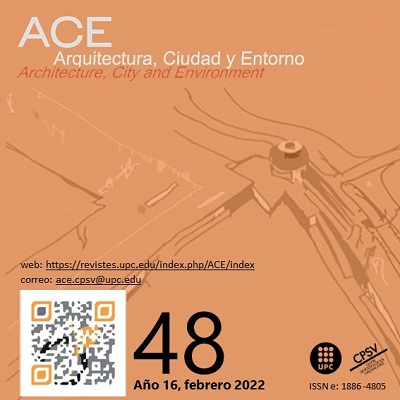Service Learning in Architecture Teaching: Participatory Budgeting and Sustainable Development Goals
DOI:
https://doi.org/10.5821/ace.16.48.10528Keywords:
Citizen participation, governance, service learning, educational innovationAbstract
This article presents the result of a research project based on educational innovation is presented here. This project combines teaching and research work in the degrees of Architecture and Social Work with the involvement of students in the participatory budgeting scheme of the City Council of Las Palmas de Gran Canaria. The main goal of this research is to analyse the potential of the transfer of social technology and the promotion of synergies between citizens, technicians and professionals who are being trained in our universities, and public administrations. It is developed through university education in the field of citizen participation which is based on service-learning methodologies. The Sustainable Development Goals are conceived as the framework of the proposal, providing the disciplines of architecture and social work the opportunity to integrate the requirements implied by the concept of sustainable development. Its approach is based on the improvement of the urban governance, with its practical application, through planning, design, and the use of management tools. The case study is developed during three call periods for participatory budgetings and it consist of four phases. The success of the proposals presented demonstrates the potential opportunities that this educational and transfer strategy represents for future collaborations between the university and citizens. In the field of architecture, we are interested in highlighting that this proposal proposes a different way of conceiving architectural creation, promoting the work of the architect as a translator or mediator between the language of architecture and society.
Downloads
Published
Issue
Section
License
| INTELECTUAL PROTECTION CRITERIA |
At this moment, it is count with the "Oficina Española de Patentes y Marcas", while global protection it is being processed by the World Intelectual Property Organization (OMPI/WIPO). Nevertheless the International Standard Serial Number Office (ISSN) has given the following numbers ISSN: 1886-4805 (electronic version) and 1887-7052 (paper version). All articles will be peer reviewed, using double blind reviewing. |
| COPYRIGHT |
The article contents and their comments are authors exclusive liability, and do not reflect necessarily the journal editor commitee's opinion. All ACE published works are subject to the following licence CC BY-NC-ND 3.0 ES http://creativecommons.org/licenses/by-nc-nd/3.0/es/ It implies that authors do not hold nor retain the copyright without restrictions but only those included in the licence. |





































